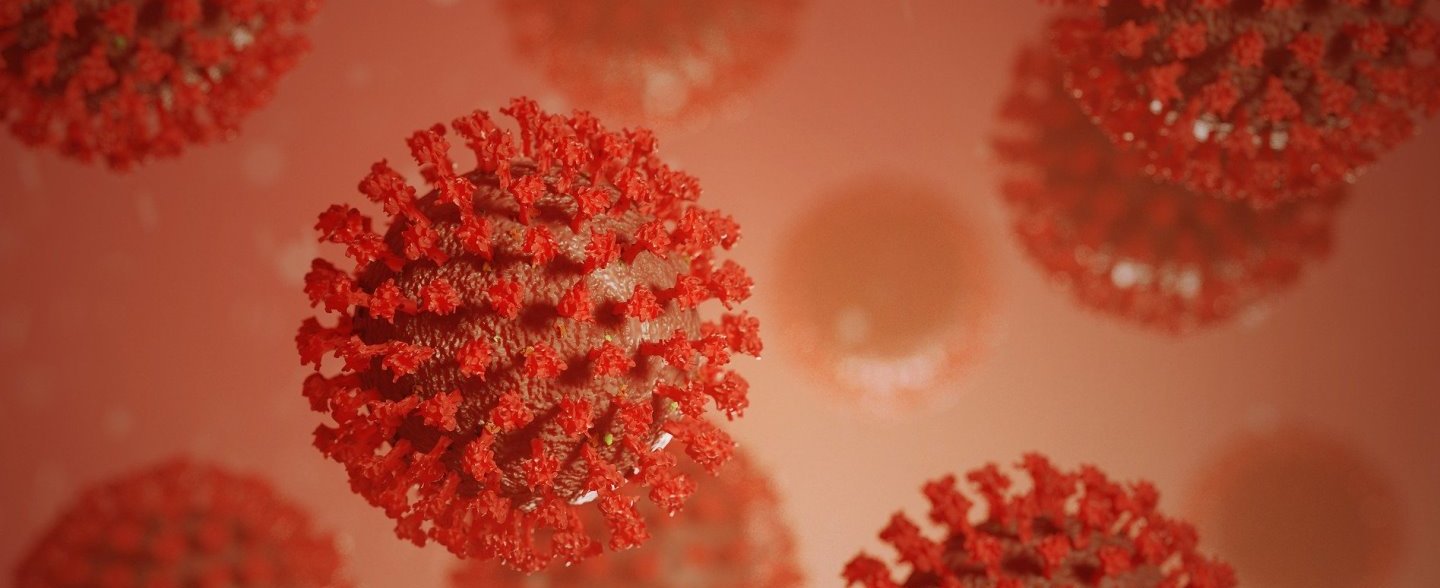News archive (2020 to 2021)
What leads to severe COVID-19 diseases?
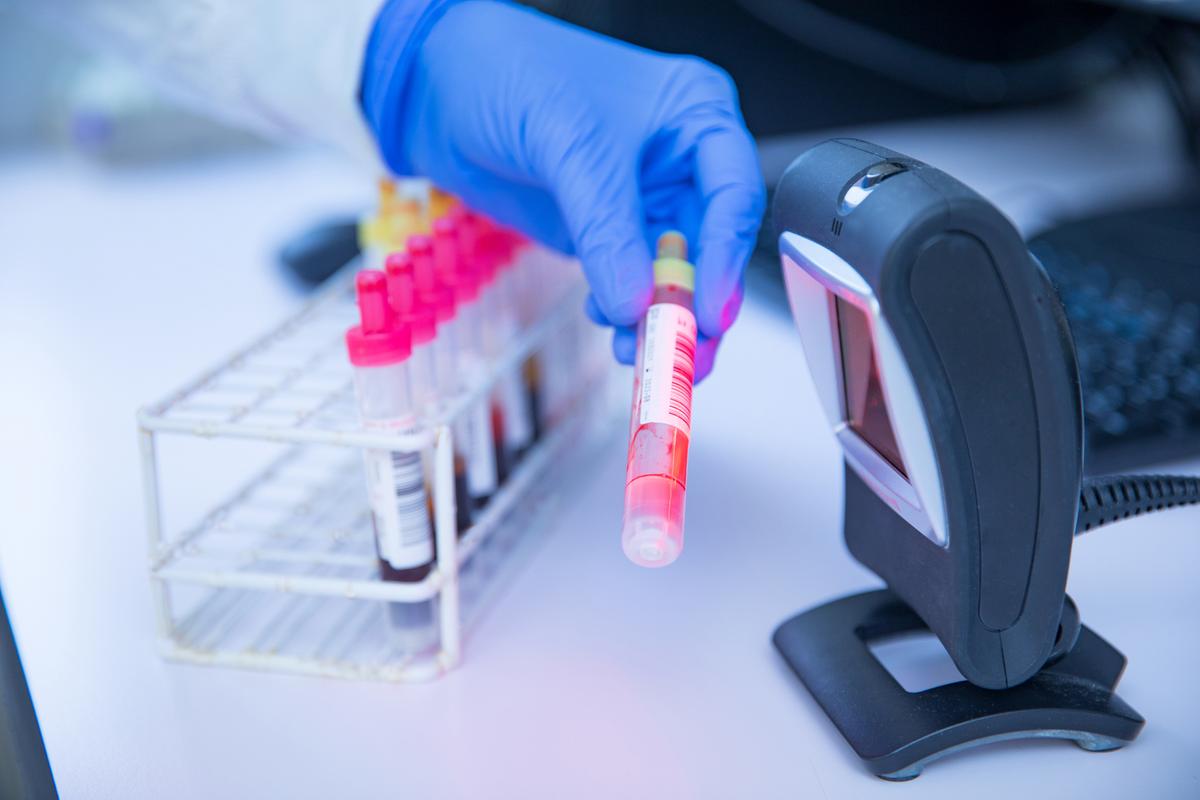
MHH research team analyses genetic and epigenetic regulators
Stand: 23 February 2023
Infection with SARS-CoV-2 leads to severe disease in some people, while others do not get ill or only experience mild disease. But why is this the case? Unfortunately, we do not know exactly. We do know that an overactive innate immune system is causing severe COVID-19 disease, but it is unclear how this is regulated. A team led by Professor Dr. Yang Li from Hannover Medical School (MHH) has come a step closer to answering this question. They addressed the question to what extent the course of disease is genetically or epigenetically regulated. The team included scientists from the MHH who, like Professor Li, also conduct research in the Cluster of Excellence RESIST
Genetic risk factors influence the development of COVID-19 disease
The team was able to identify underlying regulators of the malfunction of the innate immune system in COVID-19. In addition, it was able to confirm that certain already known genetic risk factors play a role in the development of the COVID-19 disease. The results have been published in the journal Cell Genomics. First authors of this publication are Dr Valerie Koeken, Dr Bowen Zhang and Dr Zhenhua Zhang. The research team conducted the study at the Centre for Individualised Infection Medicine (CiiM).
For this study, the team examined individual immune cells from the blood of COVID-19 patients using single-cell multiomics analysis. This technique can be used to simultaneously assess how cells are being regulated and how they are functioning. For this purpose, both the genetic material of the cells is examined and it is analysed if certain parts of the genome are ‘switched on’ (epigenetics) and if genes are being transcribed into ribonucleic acid molecules.
In a specific type of white blood cells (monocytes) whis are overactivated in severe COVID-19 disease, the team was able to identify how altered accessibility to chromatin is regulating gene expression and which transcription factors are steering these dysfunctional monocytes. In addition, they were able to identify how a specific genetic variant is contributing to a higher viral load and an increased risk of needing hospitalisation for COVID-19. This enabled them to identify one of the factors driving increased susceptibility to severe disease in certain individuals. "Overall, our study highlights the multiple genetic and epigenetic regulators that contribute to COVID-19," summarises Prof. Li.
How COVID-19 permanently damages the heart
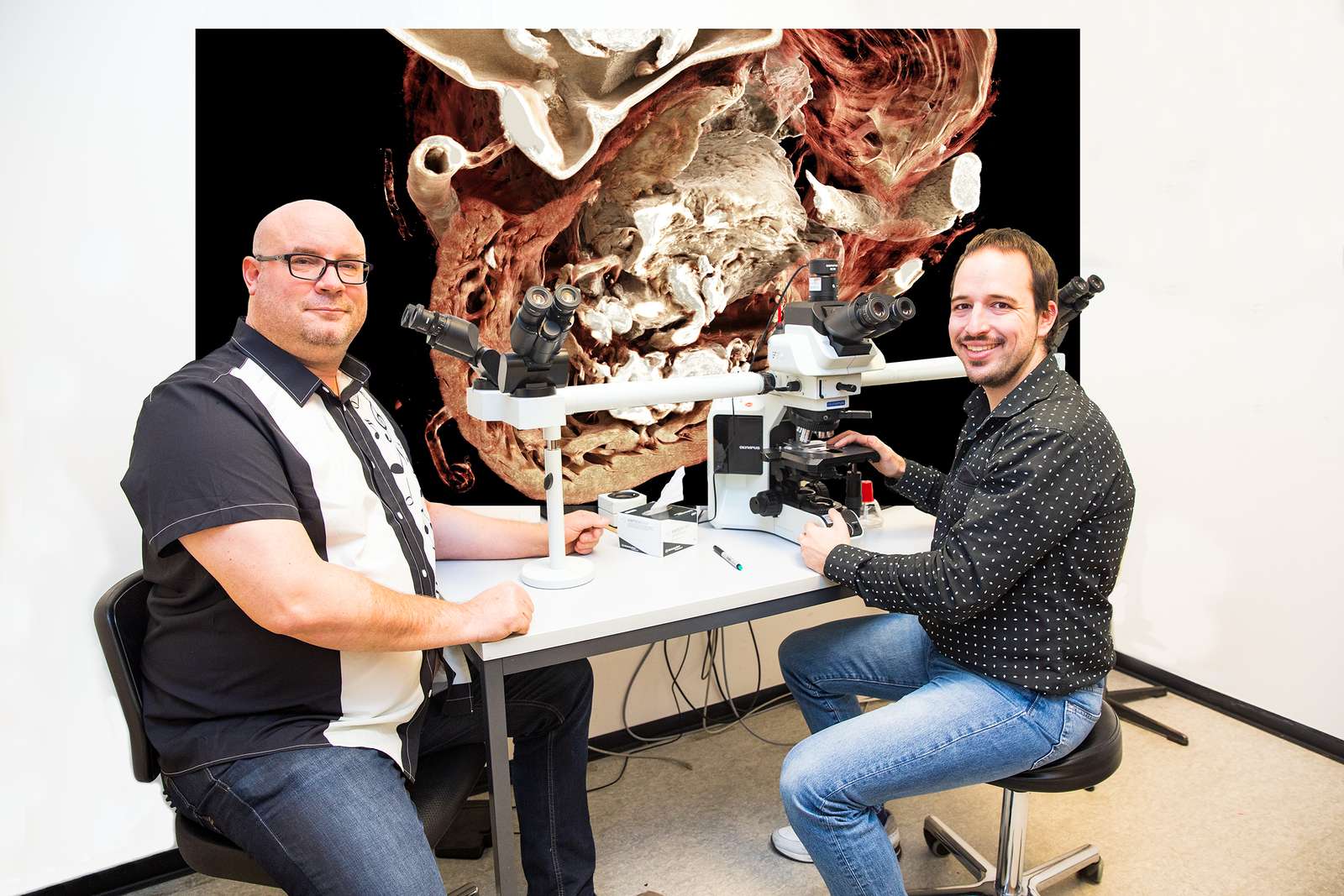
MHH research team shows for the first time how the inflammation in COVID 19 alters the smallest vessels in the heart
Stand: 5. Januar 2023
Severe courses of COVID-19 infection not only impair lung function, but can also cause life-threatening consequences for the heart. The spectrum ranges from acute inflammation of the heart muscle (myocarditis) to chronic restriction of the heart's pumping function. The basic patterns of damage have not yet been completely proven. An interdisciplinary research team led by Professor Dr. Danny Jonigk, Christopher Werlein and Private Lecturer (PD) Dr. Mark Kühnel from the Institute of Pathology at the Hannover Medical School (MHH) has now used innovative molecular methods and a high-resolution microscopy technique to show how the ongoing inflammation in COVID-19 attacks the heart tissue and, in the long term, remodels the smallest coronary vessels by directing special precursor cells of the immune system from the blood into the heart. The study was published in the renowned journal Angiogenesis.
False-activated inflammatory cells
About one in three people complain of discomfort and functional impairment of the heart after severe COVID-19 disease. In order to elucidate the mechanisms of this long-lasting myocardial damage, the researchers examined heart tissue from patients with severe COVID 19 and compared it with tissue samples taken after severe influenza infections caused by the influenza virus and after severe myocarditis caused by other viruses. Although in the COVID 19 heart injury - unlike the comparison samples - there was no classic inflammation of the heart tissue on the outside, the research team did find a large accumulation of false-activated inflammatory cells: so-called macrophages and their precursor cells, the monocytes. "These monocytes have an outstanding importance as precursor cells of new blood vessel formation and can remodel the blood vessel system in a very short time," explains Christopher Werlein, first author of the study.
COVID-19 attacks all vessels in the body
Triggered by the infection with the coronavirus SARS-CoV-2, tiny blockages accumulate in the heart vessels, which are only a few millimetres thick. "These ultra-thrombi change the blood flow considerably and thus also the oxygen supply", emphasises PD Dr. Kühnel. This calls the monocytes into action, which attach themselves to the inner vessel walls and form new branches there. This vascular remodelling - known as intussusceptive angiogenesis - has already been described by the team as a characteristic pattern of damage in other organs of COVID 19 patients. What may be intended as a short-term rescue response by the body to compensate for reduced blood flow and undersupply of oxygen could lead to chronic damage to the heart and long covid, the researchers suspect. "In any case, the latest investigations confirm our earlier assumption that SARS-CoV-2 systemically attacks all vessels in the body and remodels them in the long term," Professor Jonigk emphasises.
The work was done in cooperation with the German Center for Lung Research (DZL) at the Hannover BREATH site, the University Hospital Aachen, the University Medical Center Mainz and the Georg-August University Göttingen.
SERVICE:
The original paper "Inflammation and vascular remodelling in COVID-19 hearts" can be found here.
MHH seeks subjects for Corona vaccine studies
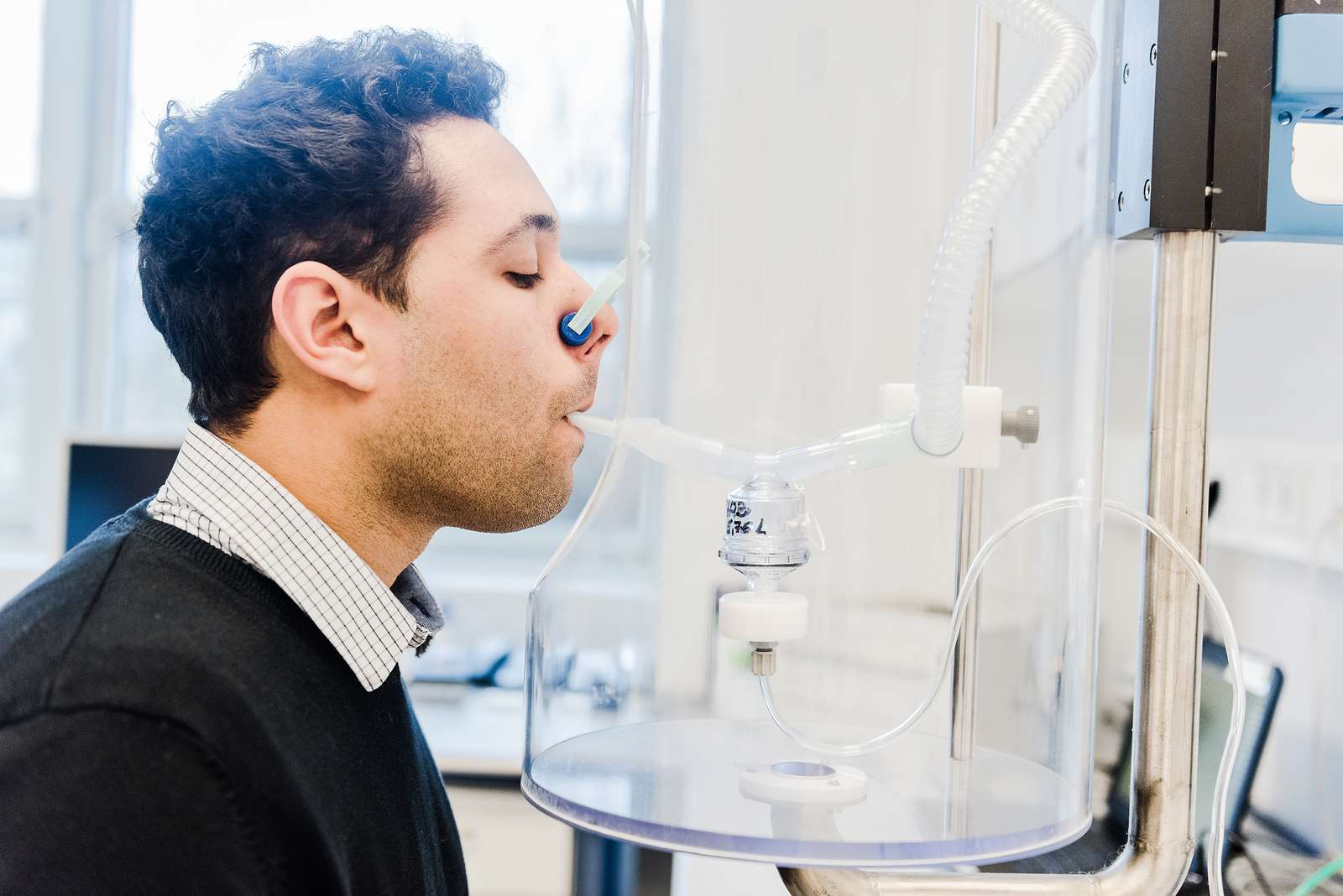
Inhalable vaccine and vaccine with two antigens will be tested on healthy people
Status: 13 September 2022
The Centre for Clinical Studies (ZKS) of the Hannover Medical School (MHH) is looking for healthy subjects for two corona vaccine studies. Both studies are in phase I. The tolerability and efficacy of the vaccines will be tested in healthy people.
The first study is about an inhalable Corona vaccine based on a genetically silenced smallpox virus. In technical jargon, it is called "modified vaccinia virus Ankara", or MVA for short. The idea for this vaccine came from MHH immunologist Professor Dr Reinhold Förster, and researchers from MHH and Fraunhofer ITEM have jointly developed the vaccine. In the clinical trial, they want to test the safety and tolerability of this new vaccine as a booster against Covid-19. Healthy women and men between 18 and 60 years of age who have been fully vaccinated against the SARS-CoV-2 virus can participate, provided that the most recent Corona vaccination was at least two to three months ago. A previous Corona infection should also have occurred at least two to three months ago. In addition, the test persons must have been non-smokers for at least one year and be willing to undergo bronchoscopy.
In the second study, the ZKS is testing a Corona vaccine developed by Speransa Therapeutics. The special feature is that this vector vaccine contains two antigens at the same time and thus induces an immune response against the spike protein as well as against the nucleocapsid of the corona virus. The researchers hope that this new approach will lead to a broader immune response compared to previous vaccines that contain only one antigen. Ideally, this vaccine could also be more protective against future mutations of the virus. For this study, the ZKS team is looking for healthy 65- to 85-year-old people who have previously only been vaccinated with an mRNA vaccine and have no previous cardiac disease. They should also have had their most recent Corona vaccination at least two to three months ago and a previous Corona infection at least two months ago.
If you are interested, please contact the MHH study team at the ZKS by phone (0511) 5350-8333 or by e-mail to crc.studienteilnahme@mh-hannover.de .
Corona researchers are looking for new targets
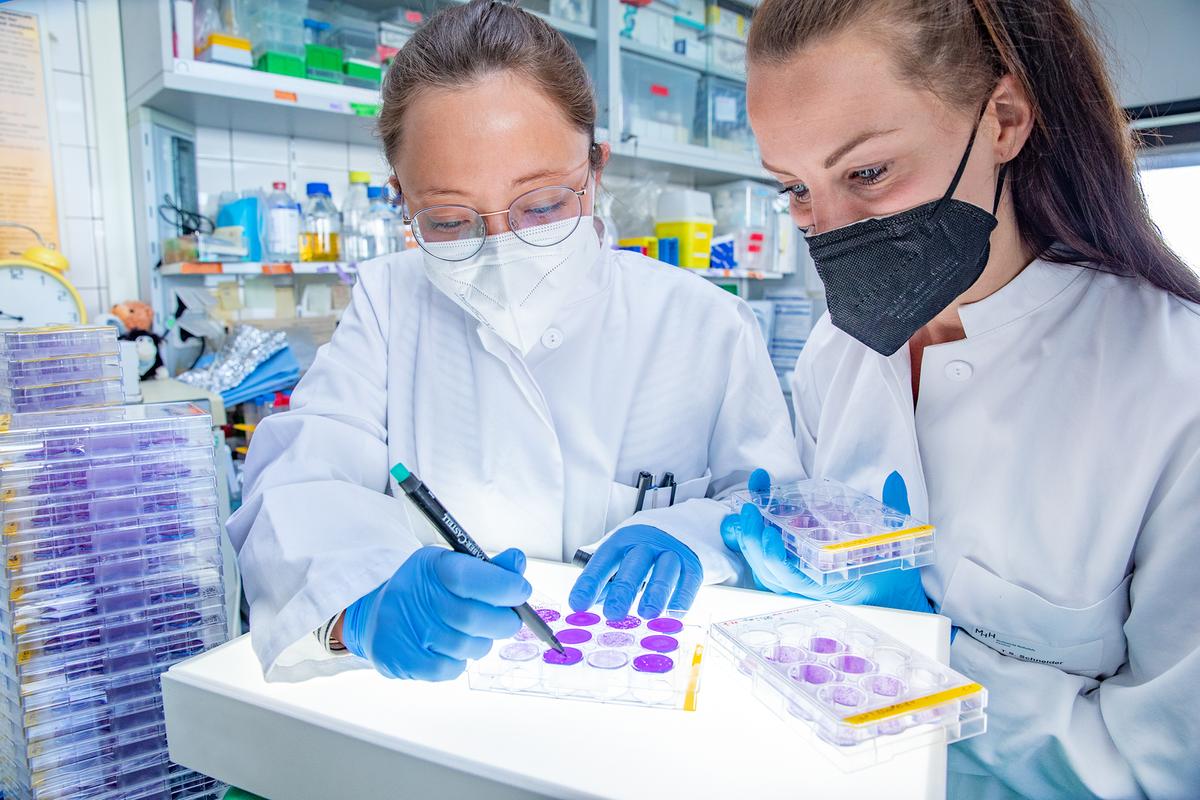
Team from the MHH, the DZIF and the University of Giessen investigates approaches for new drugs that act against many different coronaviruses
Stand: 6. July 2022
Finding active agents against SARS-CoV-2 and, if possible, against other coronaviruses - this is the goal that a team led by Professor Dr Thomas Schulz, Institute of Virology at the Hannover Medical School (MHH), coordinator of two research areas at the German Centre for Infection Research (DZIF) and spokesperson for the Cluster of Excellence RESIST, has been pursuing since the virus first appeared. Together with a team led by Professor Dr John Ziebuhr, Institute of Medical Virology at Justus Liebig University Giessen, it is now funded by the DZIF with around 440,000 euros.
So far, the scientists have already succeeded in picking out 300 substances from a collection of around 60,000 low-molecular compounds that can inhibit the human coronavirus HCoV-229E, which is related to SARS-CoV-2 but more harmless. They carried out this work, among others, with the team of Professor Dr Thomas Pietschmann from TWINCORE - Centre for Experimental and Clinical Infection Research, a joint institution of the MHH and the Helmholtz Centre for Infection Research (HZI) as well as a member institution of the DZIF. The research team has so far been able to show that eight of these substances can also inhibit SARS-CoV-2 particularly effectively.
The special path to the goal
Now the researchers will explore where exactly and, above all, how the best five of these promising molecules work. "For example, we are investigating what exactly their target structure is - i.e. whether they act in the virus or in the cell - and what they change there. For example, do they inhibit a viral enzyme or do they change structures that are essential for the reproduction of coronaviruses?" explains Dr Amelie Wachs from Professor Schulz's research group. "By identifying possibly new target structures, we hope to learn previously unknown details about the virus. Building on this knowledge - possibly after further optimisation of this substance - new effective drugs could be created," adds her colleague Talia Schneider.
The path of this research group is a special one, because many other teams are looking for substances that can bind to an already known target structure of the SARS-CoV-2 virus and thus inhibit it. If they do so using compounds that are already approved as drugs, or compounds for which there is already extensive safety data regarding their use in humans, the results will be able to be applied in the clinic relatively quickly. However, they are less productive in terms of new insights into SARS-CoV-2 and other coronaviruses. In contrast, the approach of the project now funded by the DZIF to screen previously uncharacterised substances and subsequently identify their targets offers new possibilities: Previously unknown starting points for drugs can be found that are effective against as many different coronaviruses as possible.
The team's research is particularly important for older and immunocompromised people, as they have an increased risk of a severe course of SARS-CoV-2 infection. These people are also the focus of the Cluster of Excellence RESIST (Resolving Infection Susceptibility), whose spokesperson is Professor Schulz.
RESIST – Research to help the most vulnerable
In the Cluster of Excellence RESIST, led by the MHH, more than 50 teams are working on how to better protect particularly susceptible people from infections. RESIST includes doctors working in the clinic who are very familiar with the situation of patients, as well as basic scientists who research pathogens and their interaction with the immune system down to the smallest detail. RESIST consists of six partner institutions. RESIST is funded by the German Research Foundation (DFG). For more information about the RESIST Cluster of Excellence, please visit the homepage www.RESIST-cluster.de.
New Omikron variant: What we have to prepare for

Stand: 16. June 2022
The omicron variant BA.5 is spreading rapidly in Germany. Federal Health Minister Karl Lauterbach declared that the feared summer wave is now a reality. He recommends that the elderly and those with previous illnesses get a booster vaccination. We asked Professor Dr Tobias Welte, Director of our Department of Pneumology.
Question: How do you see the current corona situation and for whom are booster vaccinations important now?
Prof. Welte: The risk factors for a severe COVID 19 infection are clearly different with Omikron than with the previous variants such as Delta. While in the latter, age and certain concomitant diseases such as diabetes, hypertonus and obesity played a significant role with regard to the course of the disease and mortality, this is different in Omikron. Severe courses occur mainly in immunocompromised patients. Significant risk factors exist after organ transplants, in autoimmune diseases - especially if a B-cell depleting therapy such as rituximab is administered - and in patients with haematological tumour diseases such as leukaemias or lymphomas - especially if there is a pronounced immunodeficiency due to the disease or therapy. For this subgroup of patients, a booster vaccination is recommended. However, about half of this group does not develop sufficient vaccination protection, even after a fourth vaccination. In this case, passive immunisation with an omicron-acting, long-acting monoclonal antibody can be considered.
Whether a fourth vaccination in the elderly is really useful now is controversial. In principle, there should be an interval of about six months between the third and fourth vaccination; if the vaccinations are too close together, the vaccination effect tends to decrease. Even after an omicron disease, an interval of a few months should be kept between vaccinations, if the ill person had already been vaccinated before. The decision as to whether the fourth vaccination should be given in September in order to improve immunity throughout the autumn and winter, or whether it should be given now (and then perhaps boosted again in late autumn), must be made on a case-by-case basis. I do not consider a general vaccination now to be useful.
How dangerous can subtype BA.5 be for us?
Prof. Welte: BA. 5 will lead to an increase in incidence for various reasons, mainly because of its good transmissibility. So far, we have no indication that this variant leads to more severe disease. Vaccination cannot reliably prevent infection under omicron conditions, but vaccination does prevent severe disease. Therefore, all people should have a basic immunisation (i.e. three vaccinations).
3. The infections caused by BA.5 are apparently taking place deeper in the bronchial tubes again, no longer just in the nose and throat area. Does that mean that the variant attacks the lungs more intensively and what does that mean for infected persons?
Prof. Welte: No, there is no indication for that. Basically, if shortness of breath is a leading symptom of COVID-19 disease, and especially if shortness of breath increases, the patient must be seen by a doctor.
4. What developments can we expect over the summer and into the autumn? Will the known corona protection measures be necessary again?
Prof. Welte: Because of the better transmissibility of the BA.5 variant, a certain increase in the number of cases of the disease is to be expected now, but so far there is no indication that hospitalisations or even admissions to intensive care units will increase significantly. In autumn, a stronger increase in incidence is probably to be expected. As a general rule, anyone belonging to a risk group should wear a mask in public places. And those who want to wear a mask out of their own sense of safety are of course welcome to do so. However, I do not see any justification for a general obligation to wear masks at the moment, given the low burden on the health system. It will hardly be possible to enforce this among the population. The essential question is what the goal of the Corona measures is. And that is clearly to prevent the overloading of the health service and critical infrastructure. Corona is here to stay for now, and corona infections are here to stay. A zero-COVID policy, as was still propagated until 2021, was not successful and will not be in the future. As a consequence, we have to prepare for life with corona, at-risk patients have to be protected and critical infrastructure has to be maintained. It is difficult to predict what will happen in the autumn, but if the aforementioned goals are in danger, we must be able to react quickly.
The questions asked: Vanessa Niedzella
No higher Covid-19 risk due to artificial insemination
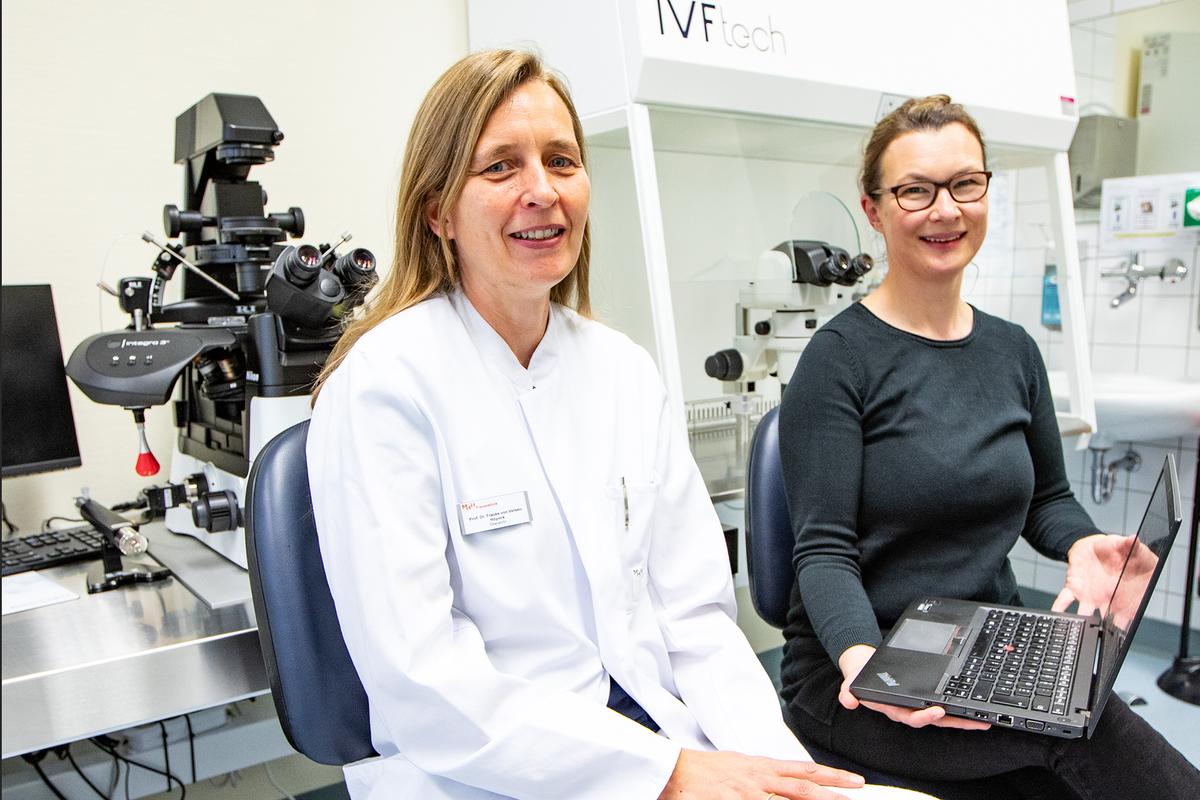
Research team analyses data from SARS-CoV-2-positive pregnant women.
Stand: 25. May 2022
If pregnant women become infected with the SARS-CoV-2 coronavirus, they are more likely to suffer from severe COVID-19 compared to non-pregnant women. Expectant mothers are therefore more likely to require intensive medical care in hospital. In addition, the risk of premature births and stillbirths increases, as well as complications in the newborns, who consequently have to be cared for in a neonatal intensive care unit. However, the method of conception - whether natural or medically assisted - does not seem to play a role. This is the result of a study led by Professor Dr Frauke von Versen-Höynck, senior physician at the Department of Obstetrics and Gynaecology at the Hannover Medical School (MHH) in cooperation with the University Hospital Schleswig-Holstein (UKSH) at the Kiel Campus. The results of the multi-centre study have now been published in the American Journal of Obstetrics and Gynecology, one of the world's most important specialist journals in gynaecology.
CRONOS register as data basis
For the study, the researchers compared the pregnancy histories of 1485 SARS CoV 2 positive expectant mothers from about 100 German maternity hospitals across Germany. The data came from the so-called CRONOS register for assessing the risk of corona infection for pregnant women and their newborns. Patients who tested positive in the clinic during their pregnancy were observed - from the course of the postpartum period until six weeks after birth. "Since the beginning of the pandemic, we have seen a great deal of uncertainty among women who rely on the help of reproductive medicine to become pregnant," says Professor von Versen-Höynck, head of the Reproductive Medicine and Molecular Perinatology Unit at the MHH Women's Clinic. "We therefore asked ourselves in this study whether there is an additional increased risk for these women with a coronavirus infection compared to pregnancies after spontaneous conception."
Higher risk of complications has other causes
In order to be able to set this special focus, the finished data tables from the Cronos register first had to be processed in a complex way. The necessary programme codes were developed by Dr. Yvonne Ziert, research assistant at the MHH Institute of Biometry and first author of the study. "The special thing about this project for me was the very close cooperation with the doctors," the scientist reports. "They provided the medical hypotheses, and I prepared the data so that they could be answered precisely." The result: it is true that the risk of obstetric and neonatal complications is higher in pregnancies after medically assisted conception. "However, this is due to corresponding pre-existing conditions such as diabetes, obesity and high blood pressure, a higher age of the pregnant women or multiple pregnancies, which are mainly found in this group of expectant mothers," Professor von Versen-Höynck emphasises. However, the type of conception is not a risk factor for a severe course of COVID.
Influence of vaccination still unclear
Next, the research team would like to look at the influence of vaccination. "The data still come from the first pandemic phase, when there was no vaccination recommendation for pregnant women," explains the senior physician. In the meantime, however, the Cronos register already contains the data of more than 1000 vaccinated expectant mothers. "It is to be expected that the prognosis for these women will be much more favourable," she assumes. But one thing is already certain: the all-clear can be given for fertility clinics even in times of pandemic.
Keyword CRONOS: The CRONOS register study was initiated by the research network of the German Society for Perinatal Medicine (DGPM) under the direction of Professor Dr. Ulrich Pecks (UKSH, Campus Kiel) and Professor Dr. Mario Rüdiger (University Hospital Dresden). The aim is to research the effects of a SARS CoV 2 infection on the health of mothers and their newborns. With the data obtained in Germany, the DGPM wants to give doctors a basis for treating and advising affected patients.
New visiting regulations for relatives
From Monday, 28 February 2022, visits by relatives will be easier
Stand: 24 February 2022
The ban on visits to the Hannover Medical School (MHH), which has existed since 1 December 2021, has been lifted. From Monday, 28 February 2022, the following visiting regulations will apply:
- One visitor per day for one hour in the period from 2 pm to 7 pm is possible
- Visits must be registered at the Service Points
- All visitors need a current test with official certification from a recognised testing centre. Without negative test results, unfortunately, no visit is currently possible!
- There are no test options at the MHH
In the delivery room, in the children’s hospital and for relatives of patients receiving palliative care or dying patients as well as patients suspected of an approaching phase of death, the existing derogations continue to apply.
For more information, please visit https://corona.mhh.de/besuch
How a SARS-CoV-2 infection can become severe COVID-19
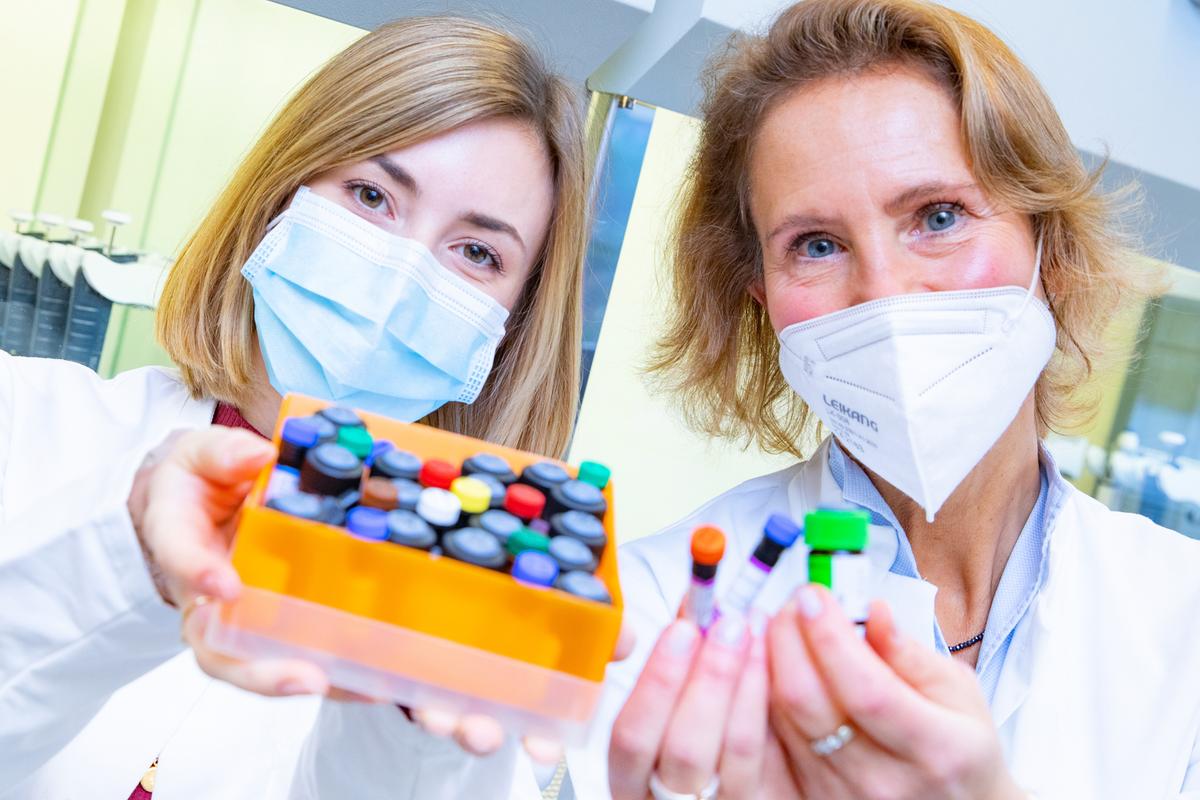
Research team demonstrates role of inflammatory plasma proteins in blood vessel dysfunction.
Stand: 03. Februar 2022
Infection with SARS-CoV-2 leaves some people almost unaffected, while others develop a life-threatening covid-19 disease. It is not yet known why the courses of the disease differ so much. A team of scientists led by Professor Dr Christine Falk, head of the MHH Institute for Transplantation Immunology and a scientist at the German Centre for Infection Research (DZIF), has now discovered that, in addition to strong immune activation and inflammatory reactions, a functional disorder of the vascular system plays an important role in severe courses. The results have been published in the journal Signal Transduction and Targeted Therapy.
Endothelial barrier no longer active
Of particular importance is the so-called endothelium, a thin layer of cells that line the blood vessels and thus form a barrier between blood flow and tissues. In severe COVID-19 courses, this barrier between the alveoli and the surrounding vessels is no longer intact. "In our study, we investigated which immune cells are activated in severe cases and in what way the endothelium, i.e. the blood vessels, and their activation play a role in the disease process," explains Professor Falk. In the immune system, there is an excessive activation of T-lymphocytes and natural killer cells (NK cells), as well as the development of memory T-cells and a strong increase in plasmablasts - these are cells that can produce large amounts of antibodies.
Plasma proteins as possible biomarkers
In studies on 58 patients with severe COVID-19 and 28 recovered patients in intensive care, the research team was able to prove that the severity of the disease is linked to the disruption of the endothelial barrier and can also be measured using inflammatory plasma proteins. A pattern of seven plasma proteins appears to be associated with severe disease characterised by strong inflammatory processes and sustained damage to the endothelium. Furthermore, recovery from severe COVID-19 cases seems to be related to the regeneration of this endothelial barrier. "We were able to show that COVID-19 intensive care patients can be divided into different groups based on their plasma protein profile, which are associated with the severity of the disease," explains first author Louisa Ruhl, a natural sciences PhD student at MHH. This finding is of great importance for the identification of potential biomarkers for severe COVID-19 courses, as well as for the development and use of new therapeutic approaches.
Which immune cells lead to the damage?
The research team now wants to find out which players of the immune system lead to activation and damage of the endothelium and whether the strong activation of the immune system also leads to the development of virus-specific T-lymphocytes, which can recognise and destroy infected cells and thus contribute to overreaction. In addition, the study has shown that there are also shifts in the immune cell repertoire in recovered COVID-19 intensive care patients. This could also be related to the development of long COVID diseases.
The study is a cooperation with the Clinic for Pneumology Dlinic for Pneumology, the Clinic for Gastroenterology, Hepatology and Endocrinology, the Institute for Virology, the Deutschen Zentrum für Lungenforschung (DZL), the Zentrum für Individualisierte Infektionsmedizin (CiiM), the Cluster of Excellence RESIST and the Universitätsklinikum Erlangen.
You can find the original publication „Endothelial dysfunction contributes to severe COVID-19 in combination with dysregulated lymphocyte responses and cytokine networks” here.
